🎣 Audit Targets Non-Resident CDLs
Plus: Canada backs off digital tax after tariff threats, Werner beats a $100M verdict, Samsara teams up with HappyRobot to bring AI voice into freight ops... and more in today's newsletter.
Plus, the most congested freight corridors in the US, manufacturing bounces back, and Baltimore cargo gets redirected.

Good Monday Morning. As the solar eclipse casts its shadow, today's feature story explores how AI agents might just eclipse real-human negotiators in freight. Plus, insights on the Top 10 Congestion Corridors for freight, the uplift from manufacturing's 16-month slump, and an update on the Baltimore Port situation.
🤔 Question of the Day: The slowest freight corridor in the US is I-__ in Fort Lee, NJ. Find the answer in our What's Cookin' in Freight Section.

TOP LANE MOVERS POWERED BY GREENSCREENS.AI
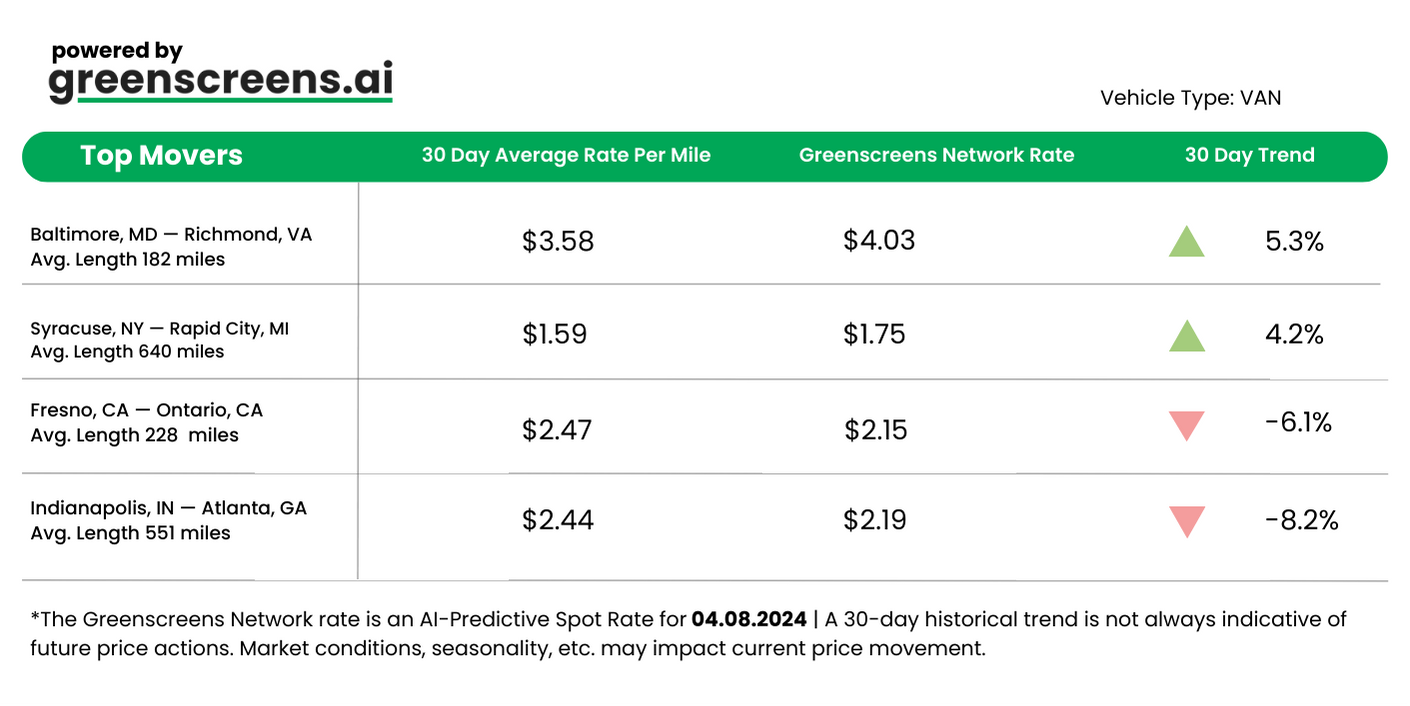
*Greenscreens.ai, forecasts real-time truckload buy prices that are suited to each freight brokerage's purchasing power using AI and machine learning. Its engine takes into account over 130 attributes and data points in each rate forecast.
🐔 WHAT’S COOKIN’ IN FREIGHT
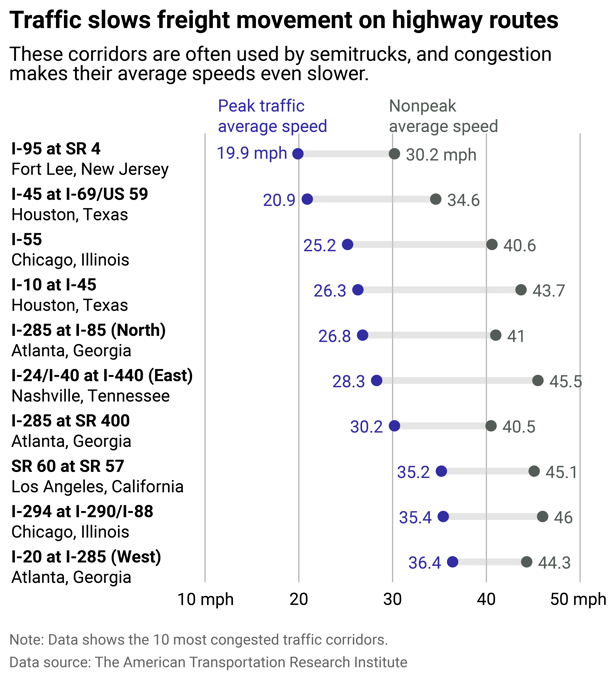
🚛 Freight's Top 10 Congestion Corridors. U.S. freight is hitting a wall of traffic, where even off-peak speeds scrape just 30.2 mph. In the worst spots, like Fort Lee, New Jersey's I-95 at SR 4, peak hour sees trucks crawling at 19.9 mph. These top 10 traffic traps aren't just time thieves; they're money pits, burning diesel and bucks by the minute. The trucking industry felt a whopping $94.6 billion hit in 2021 alone. With cities' populations growing and the boom of e-commerce, the future’s looking jam-packed. Governments turn to infrastructure investment as a solution, but questions remain on whether its enough to unclog these costly arteries.
🏭 Manufacturing Pulls Out of 16-Month Slump. As manufacturing bounces back, with the Institute for Supply Management's index hitting 50.3, a signal of expansion, the freight sector eyes diesel consumption. Despite a recent dip to $3.996 per gallon, diesel costs have surged 33% since 2019, while freight spot rates rose only 16%. This discrepancy points to the struggle carriers are facing with operational costs. However, the resilience of the freight industry suggests adaptability to these challenges. The freight market is poised for change, with low diesel inventories and a manufacturing uptick playing key roles.
📦 Baltimore Cargo Redirect: 30% to Norfolk, 41% to NY. Freight doesn't sleep. Goods are being rerouted from the Port of Baltimore following the Francis Scott Key Bridge collapse. New York and Newfolk ports take the bulk, followed by Newark-Elizabeth (NY) with 10%, Wilmington (NC) taking up 7%, and other parts grabbing 12%. The U.S. Army Corps engineers are now stitching up a temporary channel for the Port of Baltimore, aiming for a reopening by May’s end. Industry experts like Brett Trott of Interstate Logistics Systems bet on the supply chain's resilience despite the dramatic collapse, honed by past pandemics and problems. It's a testament to adaptability — a bridge may fall, but the flow of trade forges on.
TOGETHER WITH LEVITY
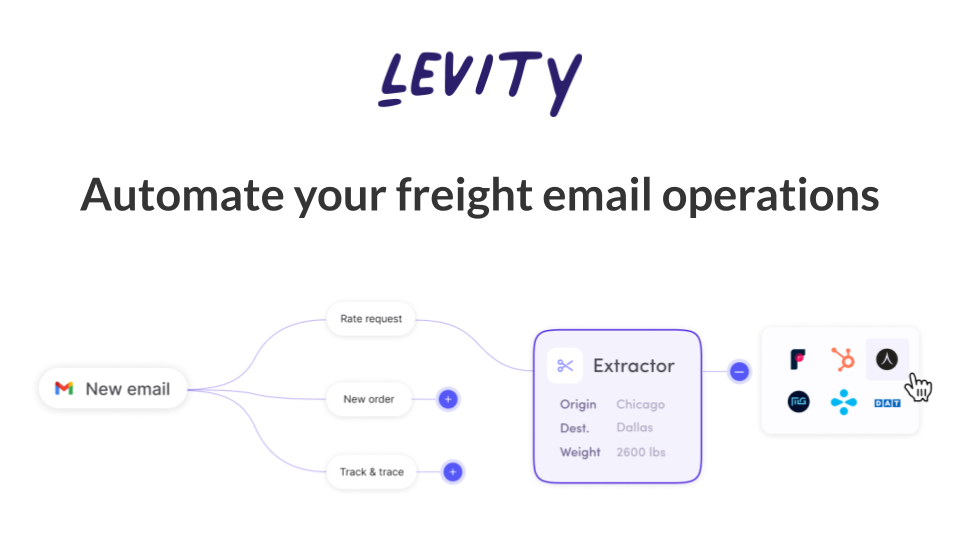
Levity helps fast-moving 3PLs and freight brokers to do more with less by automating the most time-consuming and repetitive email tasks.
Whether you're spot quoting, load building, or answering track-and-trace requests, Levity connects to your inbox, TMS, and other tools like rating engines, extracting the right information regardless of the language or format. It performs tasks on your behalf automatically in the background so you can save time and focus on building shipper relationships instead of data entry. Learn more on Levity.ai today.

We can't get enough of the demos rolling out from various generative AI robots being used in freight brokerage. The latest video showcases an AI agent handling a negotiation situation with a carrier.
We're looking at the three companies bringing the future to freight brokerage and how the industry is reacting.
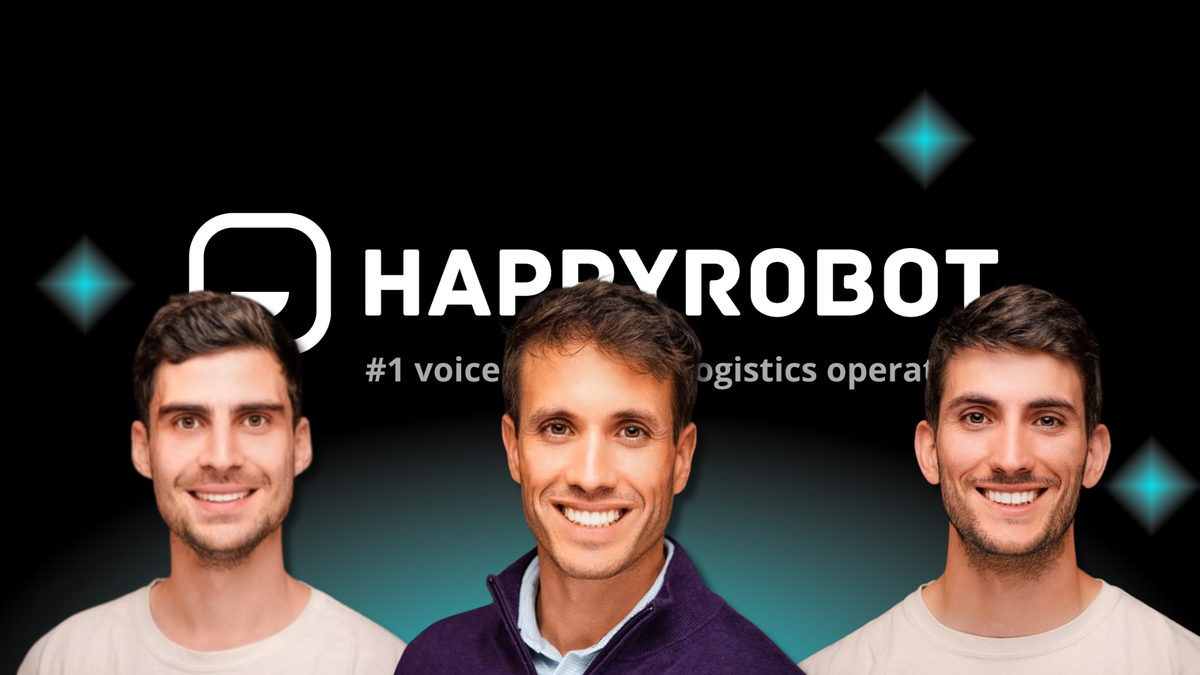
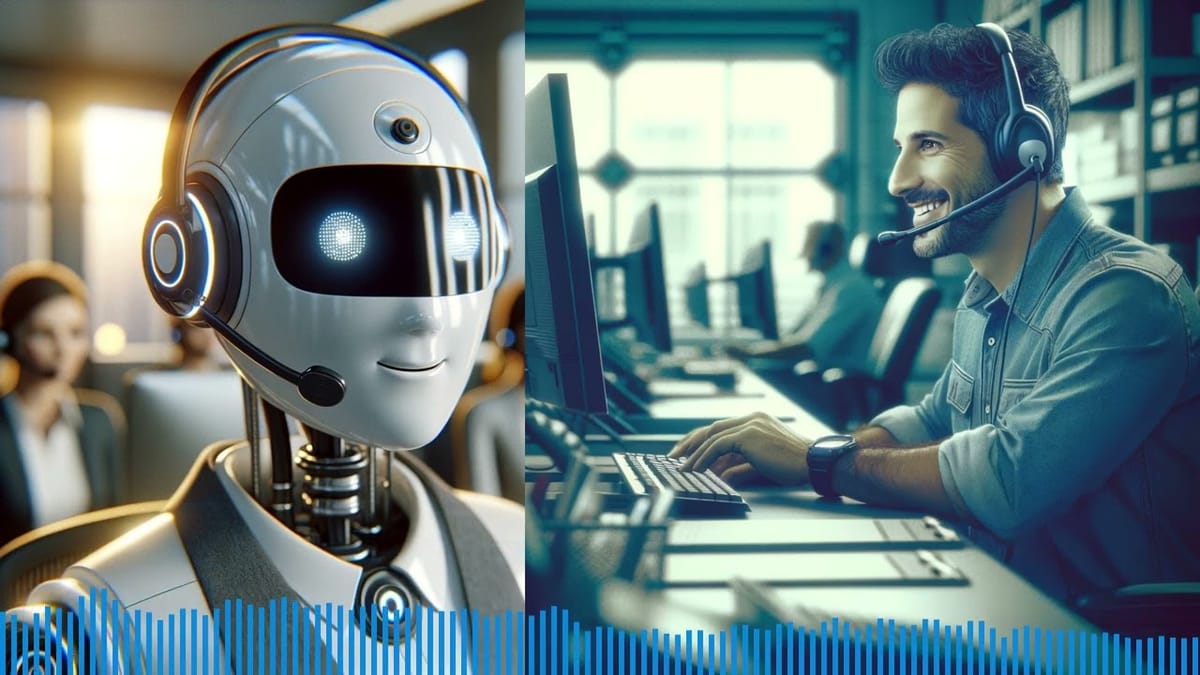
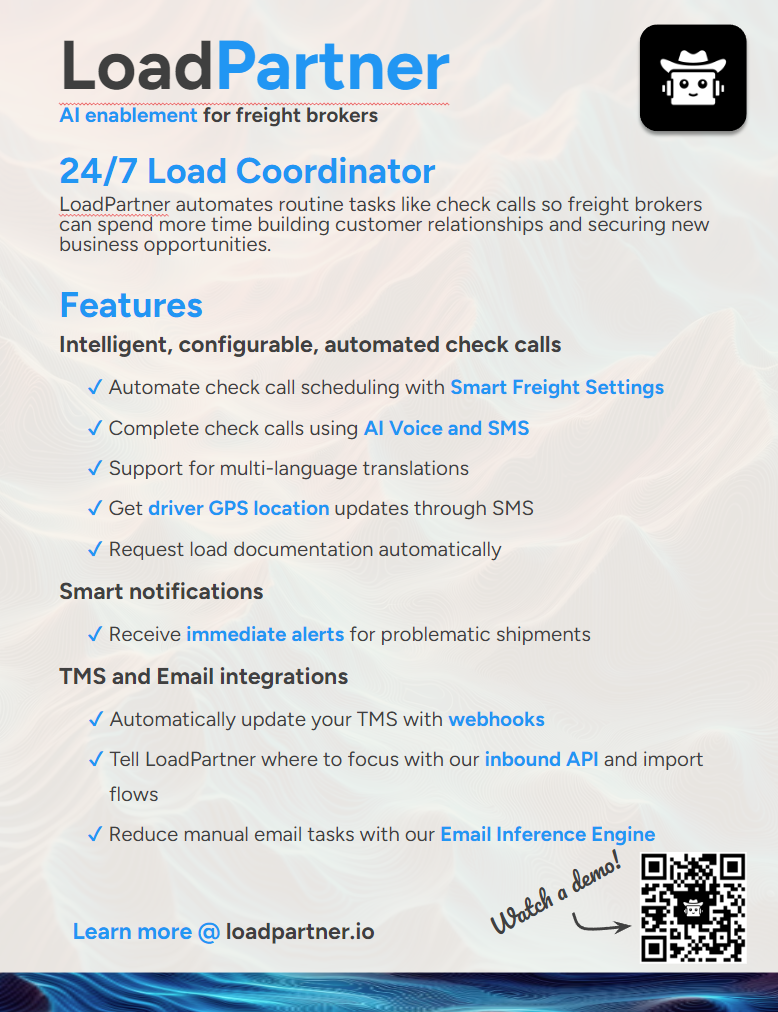
The introduction of these types of AI robots into freight brokerage seems like something out of a sci-fi movie. Yet, as the industry stands at the cusp of change, sentiments are mixed.
Early Industry Sentiment:
The prospect of brokering with AI has sparked a range of reactions. Skeptics question the efficacy of AI in nuanced negotiations and intuitive tasks, pointing out potential shortcomings in speed and the ability to handle complex or nuanced interactions.
Reactions from FreightCaviar's post of Fleetwork's demo were mixed. Some were critical, some couldn't wait for them to replace brokers.



Meanwhile, Happyrobot Co-Founder Pablo Palafox fielded a barrage of questions from various sides of the industry over on LinkedIn:
Tim Higham, CEO of AscendTMS expresses a keen interest in the tangible outcomes of deploying such technology over a significant period, questioning the real-world effectiveness in terms of driver engagement, satisfaction, and the handling of off-script inquiries. His inquiry reflects a broader industry curiosity about the practical deployment and efficiency of AI technologies in freight
"Can anyone share any ACTUAL results when this type of tech is deployed for 3+ months (or more)? ...So many questions, lol."
Vgency raises critical legal and ethical considerations regarding the negotiation capabilities of AI, pondering on the fairness and transparency of AI-driven negotiations, especially when the AI might outperform human negotiators. This insight highlights a pressing debate on the intersection of technology and law in the freight brokerage industry:
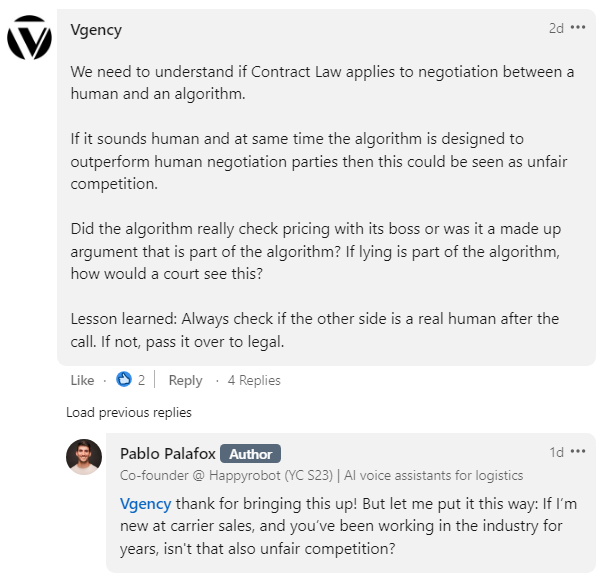
TOGETHER WITH ISO
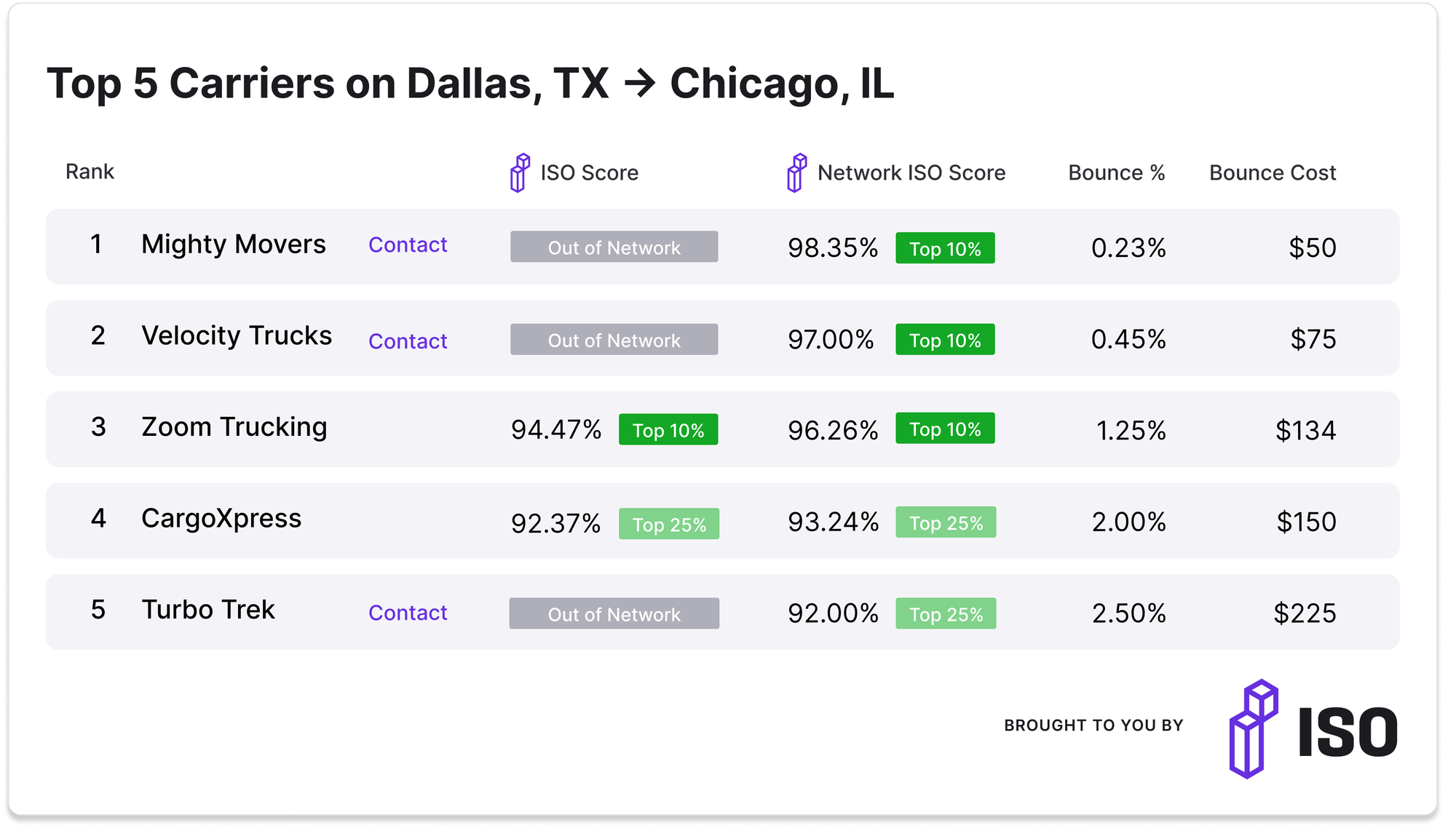
Carrier reliability is central to everything you do. Are you measuring it?
Booking unreliable carriers leads to higher operational costs: more bounces, more reschedules and more headaches. With ISO, you can source carriers for every lane based on service data. More reliable carriers mean happier customers, higher volumes and lower cost per load. Learn more at iso.io.
AROUND THE FREIGHT WEB
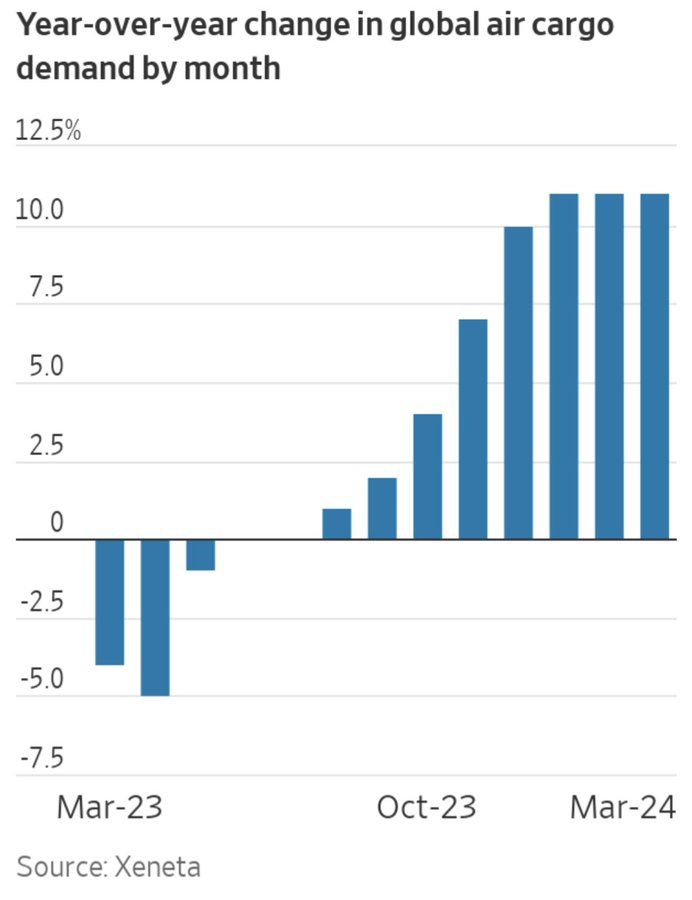
📈 Sky-High Demand. Santosh Sankar of Dynamo Ventures reposts a report on the surge in air freight demand, with spot rates rising by 46% on key lanes from the Middle East and South Asia to Europe.
👾 Tesla Can't Distinguish Cargo Trains. A older video went viral again showing Tesla's self-driving technology mistakenly identifying a cargo train as a line of semi-trucks. Tesla claims to have fixed this issue.
🌵 Border Insight with Matt Silver. The Bloomberg Odd Lots Podcast features Matt Silver, freight brokerage royalty, shedding light on the booming US-Mexico trade and technology's vital role in complex cross-border freight situations.
👨✈️ Calling all Crew. UPS is set to hire over 300 pilots to meet the surge in air cargo demand from a lucrative U.S. Postal Service contract, challenging FedEx's long-standing dominance.
🚛 Crazy Trucking Video. A video of a semi tractor and trailer almost being flipped over by the wind went viral as at the last minute the truck safely lands on the ground.
🎣 FREIGHT CAVIAR TECHNOLOGIES
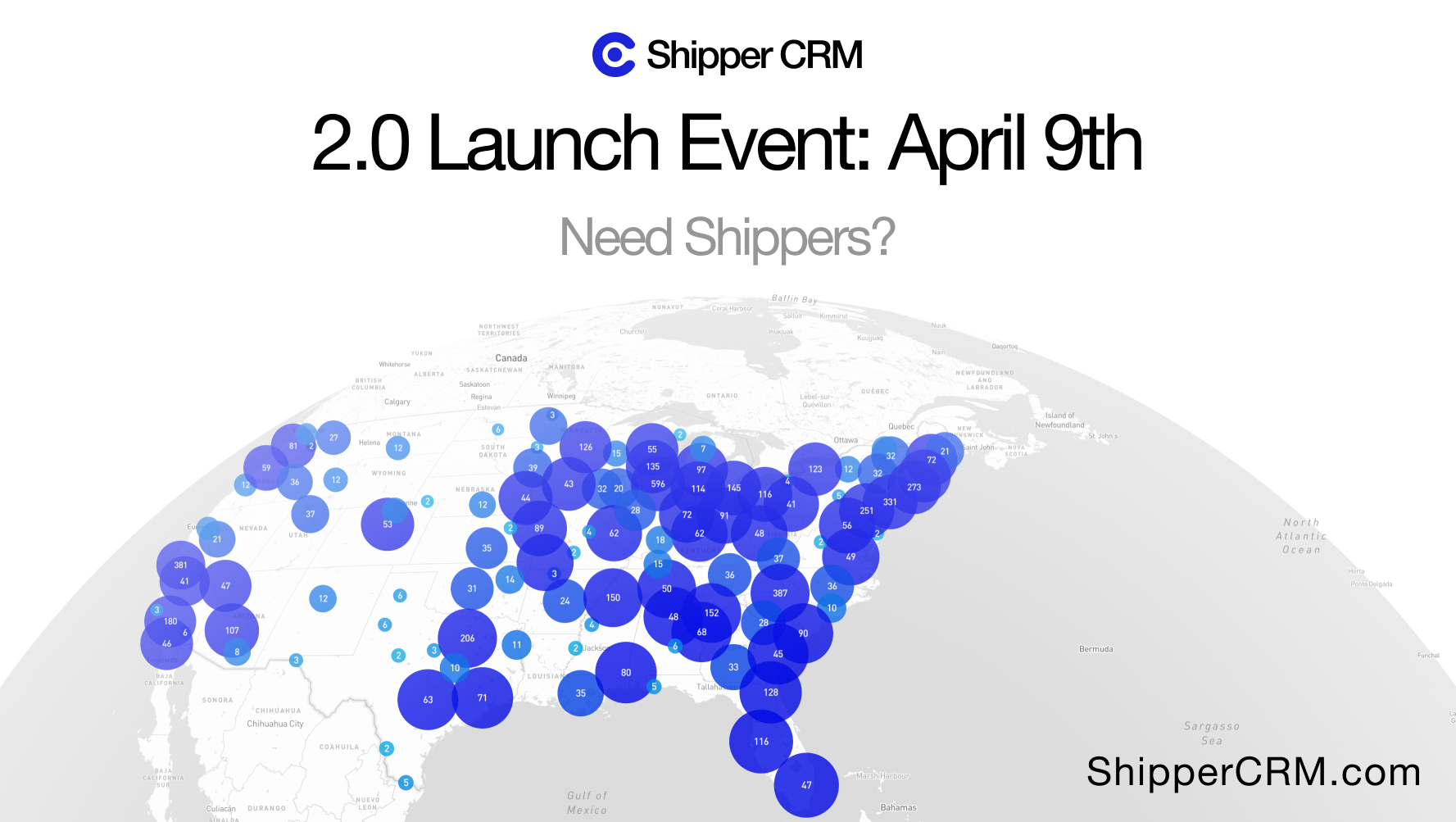
FreightCaviar Technologies is launching a shipper database & CRM for freight brokers called ShipperCRM. We've been relatively quiet about the project since October 2022, but are now ready to share with you something truly special.
Join us on April 9th as we unveil ShipperCRM 2.0. Head over to ShipperCRM.com to learn more.
FREIGHT MEME OF THE DAY

Also, check out:
Join over 12K+ subscribers to get the latest freight news and entertainment directly in your inbox for free. Subscribe & be sure to check your inbox to confirm (and your spam folder just in case).